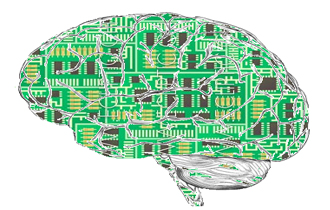
Image source: Wikimedia Commons
An interdisciplinary team from the Research Group Machine Learning for Automated Algorithm Design (Dr. Frank Hutter) and from the Machine Learning Lab (Dr. Joschka Bödecker) won the “expert phase” of the ChaLearn AutoML challenge. This competition aims at the development of automation techniques to examine all kinds of data (for example from clinical diagnostics, speech recognition and object recognition). Usually the manually processed analysis of data takes a long time for machine learning experts. Automating the analysis and making safe predictions as quickly as possible are, therefore, the main difficulties of AutoML.
In previous stages of the competition (beginner, advanced, experienced) the Freiburg computer scientists had beaten over 150 teams and, in the expert stage, came first in direct comparison with human experts as well as in the fully automated contest, thus winning a prize of $ 3000. For the first time, the team implemented the “Auto-Net” approach, an automation technique that creates deep neural networks.
Machine learning in general and deep learning in particular are highly demanded these days and the need of experts easily exceeds the educational capacities of our universities. In this respect, the award-winning artificial intelligence developed by the Freiburg computer scientists could have far-reaching consequences.
The IIF team is partially funded by the Excellence Cluster BrainLinks-BrainTools, in which machine learning is used to decode brain waves of patients e.g., in order to detect the onset of epileptic seizures or to control intelligent protheses. A future goal of the team is to automate this step, so that customized machine learning models can automatically be learned for each patient.
Frank Hutter and his colleagues presented a paper on their method at the internationally leading machine learning conference NIPS (Neural Information Processing Systems). Their AutoML system is available online and enables even non-specialists to use machine learning effectively.